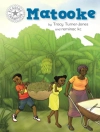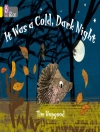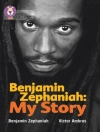Provides solutions for using inquiry-based teaching while meeting standards
This compelling new text practices what it preaches—it uses the inquiry approach to teach the inquiry approach.
The book is developed around six key questions:
1. What is science?
2. Why teach science?
3. What is the nature of scientific knowledge?
4. How do scientists construct knowledge?
5. How do people develop effective reasoning patterns?
6. What teaching methods best facilitate scientific knowledge acquisition?
Key Features
- Focus on inquiry teaching methods: This text shows teachers how to use inquiry-based teaching in a standards-based environment.
- Practical examples: Several examples of inquiry lessons are provided, along with examples of classroom management techniques, lesson planning procedures, and effective evaluation procedures.
- Research-based content: Written by a leader in the field, the book includes current and important research to frame the examples and methods.
Ancillaries
A password-protected instructor resources site includes Power Point slides for each chapter, a test bank, chapter outlines with notes, Internet resources, and sample assignments.
Tabla de materias
Part I. The Nature of Science
1. Educational Goals and The Nature of Science Inquiry
Exploring Instructional Alternatives
The Goals of American Education
How Science Is Practiced
Testing Hypothesis Using Experiments
Basic and Applied Research
2. The Nature of Scientific Theories
The Greek Four-Material Theory
The ‘Discovery’ of Oxygen
Description Versus Explanation: Why Do Objects Fall?
Proof and Disproof
The Elements of Scientific Discovery
How Do Science and Religion Differ?
Part II. Student Thinking, Development, and Learning
3. How Students Think
Exploring Student Reasoning
How Do Student Responses Relate to Intellectual Development?
Is There A Fifth State?
Why Developmental Stages Are Important to Teachers
4. Developing and Learning Different Types of Knowledge
Developing Procedural Knowledge
Provoking Self-Regulation In The Classroom
Why Does State ‘Retardation’ Occur?
Learning Declarative Knowledge
Provoking Development and Learning In The Classroom
Teaching for Development and Learning
Part III. Elements of Inquiry Instruction
5. The Origins And Outcomes of Inquiry Instruction
A Brief History of Science Instruction
Outcomes of Inquiry Instruction
6. Inquiry Instruction
Exploring Instructional Alternatives
Types of Learning Cycles
How Do Learning Cycles Relate to Doing Science?
Using Textboks to Introduce New Terms
7. Planning For Inquiry
Questions to Consider
Preparing Good Lesson Plans
8. Technology, Labs, and Safety in the Inquiry Classroom
Classroom Technology
Labs in the Inquiry Classroom
Lab Safety and Organism Use
Part IV. Instructional Strategies
9. Demonstrations, Lectures, Discussions, and Field Trips
Demonstrations
Lectures
Discussions
Field Trips
10. Managing the Inquiry Classroom
Classrooms Rules and Procedures
Solving Management Problems
The Classroom Management Survey
11. Inquiry Instruction and Diverse Learners
Strategies for English Language Learners
Avoiding Gender Bias
Students With Learning Disabilities
Meeting the Needs of Gifted Students
Selecting and Using a Textbook for Diverse Learners
12. Curriculum Development
Types of Concepts
Conceptual Systems
Inititating and Sequencing Units
Teaching the Ecosystem Conceptual System
Scheduling Learning Cycles
Integrating Technological and Societal Issues
13. Assessing Student Progress
Types of Assessment
Anticipating and Reducing Bias
Assigning Grades
Developing Effective Exams
Bloom′s Taxonomy of Educational Objectives
Using Exams to Encourage Self-Regulation
Developing and Scoring Essay Exams
Using Homework Problems to Encourage Self-Regulation
Using Written Assignments to Encourage Self-Regulation
Part V. Professional Induction and Development
14. Helping More Teachers Use Inquiry
Inquiry Doesn′t Take Too Much Time and Energy
Inquiry Can ‘Cover’ Enough Material
Reading Inquiry Textbooks Can Be Easier
Risk Is Not Too High
Concrete Thinkers Can Inquire
Students Don′t Waste Too Much Time
Old ‘Dogs’ Can Learn New ‘Tricks’
Inquiry Is Flexible
Inquiry Increases Comfort
Inquiry Is Not Too Expensive
Using the RTOP to Measure and Improve Inquiry Teaching
15. Professional Development
Professional Development Standards
Good Teaching Really Matters
Conducting Action Research in Your Classroom
Sobre el autor
Dr. Anton Lawson’s career in science education began in the late 1960s in California where he taught middle school science and mathematics for three years before completing his Ph.D. at the University of Oklahoma and moving to Purdue University in 1973. Lawson continued his research career at the University of California Berkeley in 1974, and then moved to Arizona State University in 1977, where he currently conducts research and teaches courses in biology, in biology teaching methods, and in research methods. Lawson has directed over 100 workshops for teachers, mostly on inquiry teaching methods, and has published over 200 articles and over 20 books including Science Teaching and the Development of Thinking (Wadsworth: Belmont, CA, 1995), Biology: A Critical Thinking Approach, (Addison Wesley: Menlo Park, CA, 1994), and The Neurological Basis of Learning, Development and Discovery, (Kluwer: Dordrecht, The Netherlands, 2003). Lawson’s most recent book is an introductory biology text called Biology: An Inquiry Approach, (Kendall/Hunt; Dubuque, IA, 2004). Lawson is perhaps best known for his research articles in science education, which have three times been judged to be the most significant articles of the year by the National Association for Research in Science Teaching (NARST). He has also received NARST’s career award for Distinguished Contributions to Science Education Research as well as the Outstanding Science Educator of the Year Award by the Association for the Education of Teachers in Science.












